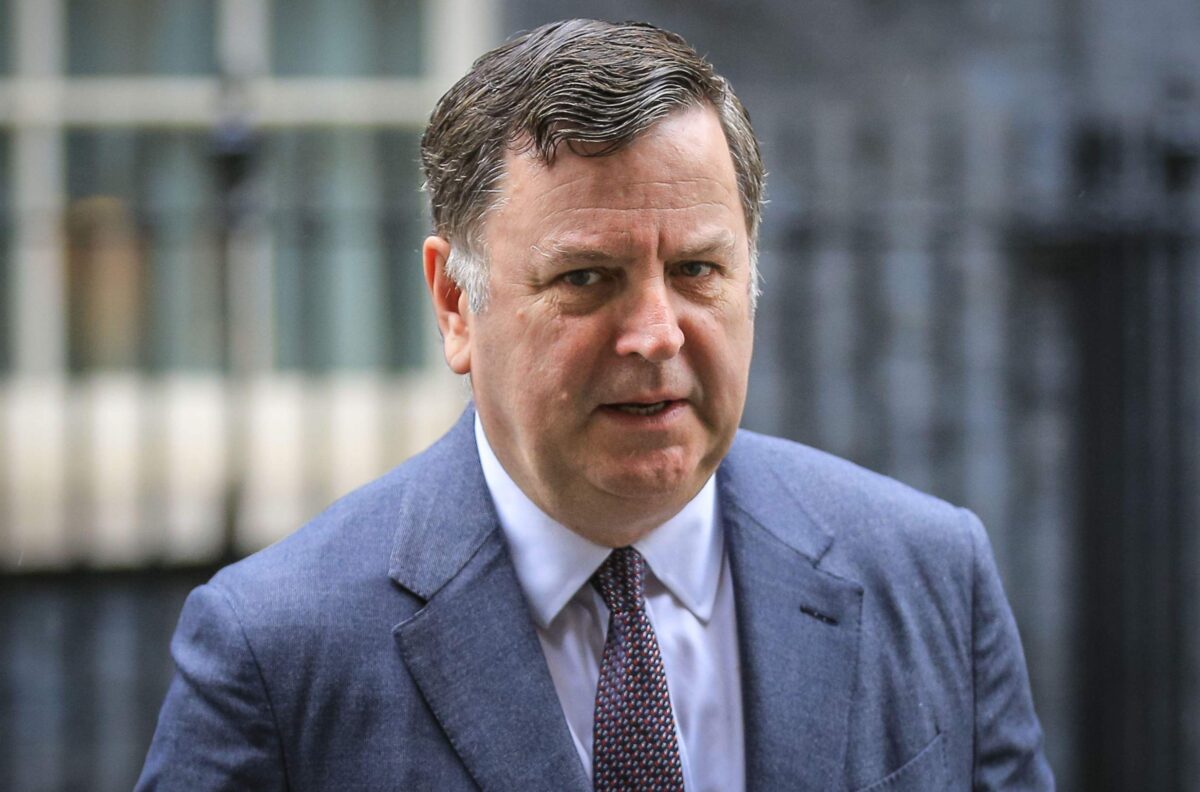What did Mel Stride announce at the Conservative Conference and what It means for UK?

Shadow Chancellor, Sir Mel Stride. Image Credit: Byline Times
In a speech at the Conservative Party Conference in Manchester, shadow chancellor Sir Mel Stride unveiled a sweeping economic and welfare plan aimed at reviving UK businesses and supporting young workers. Stride framed his proposals as a contrast to Labour’s policies, emphasizing fiscal responsibility, lower taxes, and targeted welfare reforms.
“The Conservative Party will never make fiscal commitments without spelling out exactly how they will be paid for,” Stride told delegates, promising a future government committed to both opportunity and accountability.
Business Rates Abolished for High Street Shops and Pubs
One of the headline announcements was the plan to abolish business rates for approximately 250,000 hospitality, retail, and leisure businesses that pay £110,000 or less annually. Stride described the move as essential for reviving struggling high streets and freeing small business owners from heavy taxation.
“Under Labour, many have seen their business rates double. We need to get business rates down. In fact, we need to go further. Much, much further,” he said. The measure, projected to cost £4bn annually, reflects a wider Conservative strategy of boosting enterprise and protecting local economies.
Welfare Reform and Targeted Support
Stride also emphasized welfare reform, pledging to cut £23bn from the welfare bill by restricting payments to those with less severe mental health conditions, while ensuring benefits are reserved for those most in need. He argued that work provides stability, pride, and social interaction, positioning employment as a better long-term solution than blanket welfare.
“Citizenship should mean something,” Mel Stride asserted, noting that foreign nationals should not have unrestricted access to disability or sickness benefits. These reforms, combined with a broader £47bn public spending cut over five years, aim to balance fiscal responsibility with social support.
Support for Young Workers and First-Job Bonus
The speech included a proposal to reward young workers with a £5,000 tax rebate toward their first home, funded through the redirection of National Insurance contributions into long-term savings. Stride framed this as part of a wider strategy to encourage aspiration, homeownership, and financial independence among the UK’s younger population.
“This country can get back to a sense of ‘we can and we will,’” Stride said, emphasizing that opportunity and entrepreneurship are central to Conservative values.
READ ALSO
Why did Sébastien Lecornu resign as French Prime Minister: Political Crisis Explained
Cuts to Overseas Aid and Government Spending
Mel Stride also promised to reduce the overseas aid budget from 0.5% to 0.1% of national income, ending expenditure on asylum hotels and certain environmental subsidies. Combined with plans to reduce civil servant numbers to 2016 levels and scrap unnecessary projects, these measures are projected to save nearly £47bn over five years.
Economic Vision Inspired by Innovation
Reflecting on a recent trip to Silicon Valley, Mel Stride highlighted the importance of innovation, technology, and private enterprise. He suggested that adopting similar strategies in the UK, lower taxes, cheaper energy, and a culture of enterprise, could drive growth and position Britain at the forefront of the global economy.
Conservative Vision for the Future
Stride’s conference speech underscores a vision of disciplined fiscal management, revitalized high streets, and increased opportunities for young workers. By combining business support, welfare reform, and innovation-led economic growth, the Conservatives aim to present themselves as the party of hope, aspiration, and sustainable prosperity.
FAQ
Q1: What did Mel Stride announce about business rates?
A1: Stride pledged to abolish business rates for around 250,000 small hospitality, retail, and leisure businesses paying £110,000 or less annually, aiming to revive high streets.
Q2: How much will the welfare reforms save?
A2: The Conservative Party plans to reduce the welfare bill by £23bn by targeting benefits to those most in need and limiting claims for people with less severe mental health conditions.
Q3: What is the £5,000 first-job bonus?
A3: Young people entering their first full-time job will receive a £5,000 tax rebate to help with buying their first home, funded by redirecting National Insurance contributions into a long-term savings account.
Q4: How will government spending be reduced?
A4: Proposed cuts include £7bn from overseas aid, £8bn from reducing civil servant numbers, £3.5bn from ending asylum hotel use, £4bn from benefit restrictions, and £1.6bn from environmental policy cuts, totaling £47bn over five years.
Q5: What is the Conservative stance on fiscal responsibility?
A5: Stride emphasized that tax cuts and spending must be affordable and clearly funded, contrasting Conservative discipline with Labour’s approach of rising debt and unplanned expenditure.
Q6: How does Stride plan to support the UK economy?
A6: By cutting business rates, encouraging innovation, supporting entrepreneurship, and promoting fiscal discipline, Stride aims to create a culture of growth and opportunity.
Q7: Will foreign nationals still receive UK benefits?
A7: Stride proposed limiting access to disability and sickness benefits for non-UK nationals, arguing that citizenship should carry responsibilities.
Q8: How will the Conservative plan affect high streets?
A8: Removing business rates, supporting small businesses, and fostering enterprise is intended to revive struggling high streets and reduce closures.

